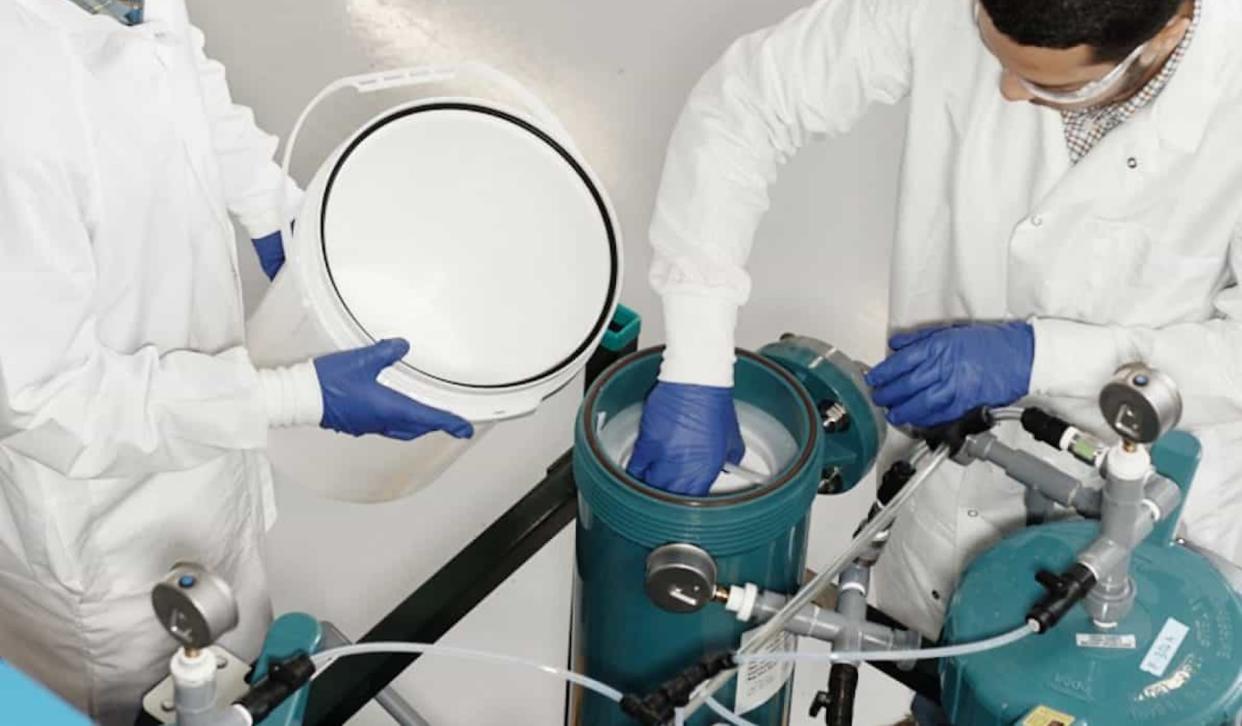MIT startup passes major milestone with first-of-its-kind 'true zero' building material: 'It's a huge step'

A sustainable cement-making company that has referred to itself as the "electrical vehicle of cement making" recently passed a major milestone, getting its "true zero" cement used in an actual building, CleanTechnica reported.
Sublime Systems, a startup that spun out of MIT in 2020, has revolutionized the cement-manufacturing process to remove the components that produce massive amounts of planet-overheating air pollution.
Traditionally, cement — the crucial ingredient in concrete — is made with limestone using kilns that are powered by dirty energy. These elements combine to create huge amounts of heat-trapping carbon dioxide. It has been widely reported that the cement-manufacturing industry is responsible for around 8% of the world's planet-overheating air pollution.
Replacing the kilns and limestone, Sublime's innovative new process relies on an "electro-chemical process [that] extracts reactive calcium and silicates from an abundance of raw materials at ambient temperature," CleanTechnica explained.
The process results in what amounts to very normal cement, which is exactly what the construction industry is looking for. Sublime's patented Sublime Cement is currently being used in One Boston Wharf, a large-scale development on the Boston waterfront, and the developers seem happy with the product.
"In the grand scheme of things, it was, really, very boring for construction," said David Robb, the pre-construction manager for One Boston Wharf. "But it's a huge step in terms of our embodied carbon reduction goals that we're striving toward in the future."
Watch now: These high-tech roads wirelessly charge your car as you drive
Considering how much air pollution the construction industry produces, it is past time for more developers to get on board with new materials like Sublime Cement. In Ireland, the government recently passed new rules requiring more planet-friendly materials to be used in cement manufacturing. More countries will likely need to take steps like these to spur widespread adoption of new technologies.
"What amazes me [is that] they didn't do this 20+ yrs ago," one CleanTechnica commenter wrote.
"It is a good step, now it is time to get lots of other companies, places on board to use the process/concrete," wrote another. "Any step to reduce emissions overall is a good step into the right direction."
Join our free newsletter for weekly updates on the coolest innovations improving our lives and saving our planet.

